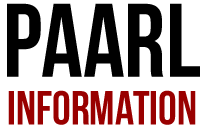BY SAM MKOKELI, FEBRUARY 04 2016

WANING POWER? Observers within the ANC say President Jacob Zuma’s internal party support is withering after recent actions. Picture: AFP PHOTO/JOHN MACDOUGALL
HOSTILITY at the last African National Congress (ANC) executive committee meeting could have influenced President Jacob Zuma to make his unexpected about-turn on paying back some of the R246m spent on upgrading his Nkandla home.
In a late-night announcement — which has now become the norm — the Presidency said on Tuesday that Mr Zuma would make the concession, stunning his party colleagues who have defended him vociferously in the past two years.
Some in the ANC said on Wednesday the U-turn testified to Mr Zuma’s waning power, as his second term as party leader winds down.
An ANC MP, speaking on condition of anonymity, said Mr Zuma “bowed to pressure from the public and from within the movement”.
He said Mr Zuma’s internal support was “withering” and he was looking “isolated” after he had been widely condemned and then suffered the humiliation of being reined in after his December 9 firing of the finance minister.
At the ANC’s lekgotla last week, Mr Zuma had had an unusually “tough time”, an insider said.
The Nkandla scandal was raised a number of times and the possibility of Mr Zuma losing in the Constitutional Court was flagged.
ANC leaders and top officials of its allies also complained about the “capture” of the state by the Gupta family whose members are friends of Mr Zuma and his family.
ANC officials on Wednesday said they were “stunned” by the U-turn after the lengths to which the ANC had gone to defend Mr Zuma.
The proposal to pay for the undue benefits he gained from the upgrades came a week before a Constitutional Court showdown between Mr Zuma’s legal team and lawyers representing the Democratic Alliance and the Economic Freedom Fighters (EFF). They want the court to reaffirm the powers of Public Protector Thuli Madonsela and to have her findings made binding. They also want Mr Zuma to fulfil his constitutional obligations by implementing Ms Madonsela’s report — among other things, by paying for his having benefited unduly from the spending.
Mr Zuma’s move came days before next week’s opening of Parliament. Last year’s state of the nation address was disrupted by EFF MPs chanting “pay back the money”.
Legal experts warned on Wednesday that this may not be the end of the Nkandla matter, and the draft order proposed by Mr Zuma’s legal team fell short of the remedies outlined in Ms Madonsela’s report into the R246m upgrades.
The report instructed Mr Zuma to rebuke the police and public works ministers Nathi Nhleko and Thulas Nxesi. But the two became part of the bulwark that defended Mr Zuma, while ostracising Ms Madonsela.
ANC MP Mathole Motshekga, who was one of Mr Zuma’s staunch defenders would only say, “The matter is before the court.”
His colleague, Cedric Frolick, said: “It’s in the hands of the courts. Parliament has concluded its work; those two reports are there, they speak for themselves.”
Parliament produced two reports that in effect exonerated Mr Zuma, while the government had a number of reports from its own investigations handled by an interministerial task team and the Special Investigating Unit.
This is not the first time that Mr Zuma has pulled out of tricky legal situations at the last minute.
In 2011, he appointed a commission of inquiry into the “arms deal” the night before he was supposed to file court papers opposing businessman Terry Crawford-Browne’s application for the establishment of such a judicial probe.
Advocate Paul Hoffman said on Wednesday this week’s tactic mirrored Mr Zuma’s 2011 move.







Recent Comments